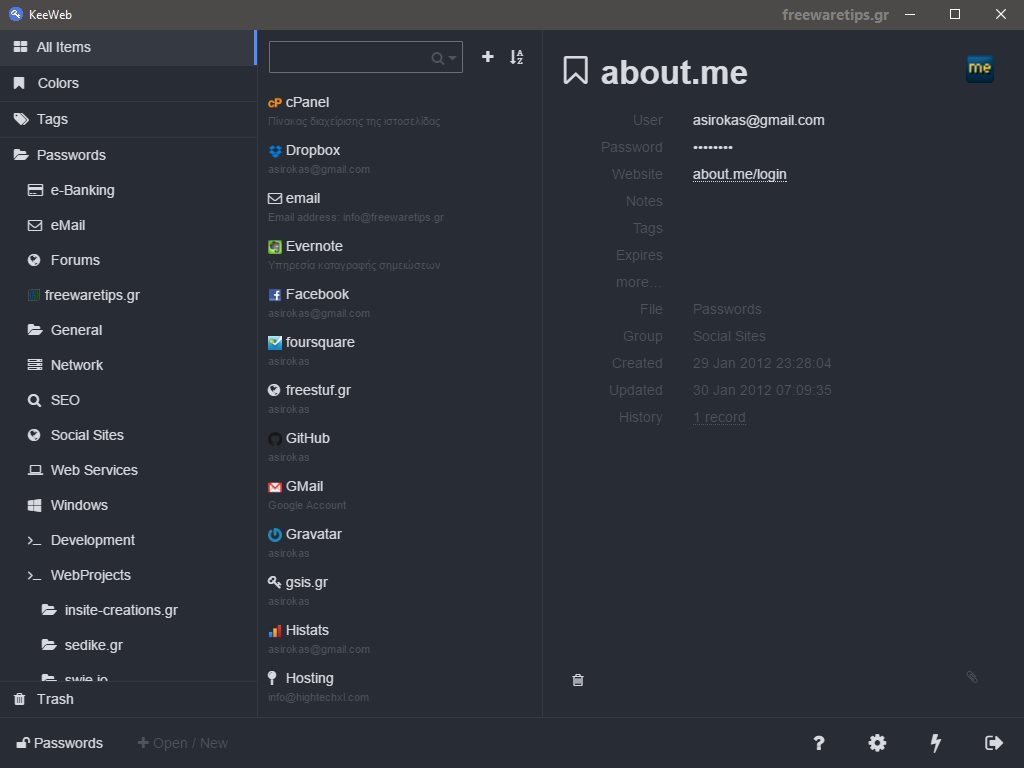

With all these features, LastPass is really a solid contestant! Besides, LastPass and its alternatives should in theory never have access to your secrets.
secure notes that can be used for any plain text secretīesides, with 2$/month, you can share secrets with more than one person and rely on stronger multi-factor authentication such as a YubiKey. I decided to try LastPass because of its generous free plan including: LastPass lets you share securely passwords with your family, friends and coworkers. 
LastPass is one of the most popular password manager with Dashlane and 1Password. This is what bothers me the most as, like I said, I am trying to decentralize my digital life. It is indeed optimized for Google’s Android and Chrome and becomes less convenient if you are willing to switch to iOS or Firefox.
 Being yet another Google product, it has a strong vendor-locking effect. It cannot be used for long multi-line plain text secrets such as cryptographic key pairs. By the way, you can check if all your accounts are safe at: Have I been pwned? I guess most of its users thus still rely on the bad practice of having the same - or just slightly different- password on all their apps, compromising all their accounts if only one of their app is hacked. Smart Lock has no integrated UI to generate a random password when signing up for a new website. Storing your most sensitive data in closed-source software. Smart Lock integrates well with Google ecosystem. It syncs your passwords between all your devices and automatically fills in web forms and signs you in to mobile apps. In fact most of Chrome and Android users probably use it, like I did, without necessary having made the choice conscientiously or even without noticing it. Google Smart LockĪs always with Google this is a well-thought and convenient product. Basically, your password manager solution should let you store securely any plain text secret. I am using the term secret management instead of password management because once you found a trusted way to secure your passwords behind a master passphrase, there is no reason not to also store non web-based secrets such as your credit card number and PIN or your SSH/cryptocurrency key pairs if you have some. You can either come up with a personal passphrase yourself or use a technique such as Diceware. Since you are going to protect all your passwords with a unique memorable secret, it is important to choose it wisely. Using a single strong password will take a load off your mind, freeing up brain power for more productive things than remembering a long list of passwords. Edward Snowden telling John Oliver to use passphrases instead of weak passwords.
Being yet another Google product, it has a strong vendor-locking effect. It cannot be used for long multi-line plain text secrets such as cryptographic key pairs. By the way, you can check if all your accounts are safe at: Have I been pwned? I guess most of its users thus still rely on the bad practice of having the same - or just slightly different- password on all their apps, compromising all their accounts if only one of their app is hacked. Smart Lock has no integrated UI to generate a random password when signing up for a new website. Storing your most sensitive data in closed-source software. Smart Lock integrates well with Google ecosystem. It syncs your passwords between all your devices and automatically fills in web forms and signs you in to mobile apps. In fact most of Chrome and Android users probably use it, like I did, without necessary having made the choice conscientiously or even without noticing it. Google Smart LockĪs always with Google this is a well-thought and convenient product. Basically, your password manager solution should let you store securely any plain text secret. I am using the term secret management instead of password management because once you found a trusted way to secure your passwords behind a master passphrase, there is no reason not to also store non web-based secrets such as your credit card number and PIN or your SSH/cryptocurrency key pairs if you have some. You can either come up with a personal passphrase yourself or use a technique such as Diceware. Since you are going to protect all your passwords with a unique memorable secret, it is important to choose it wisely. Using a single strong password will take a load off your mind, freeing up brain power for more productive things than remembering a long list of passwords. Edward Snowden telling John Oliver to use passphrases instead of weak passwords.







 0 kommentar(er)
0 kommentar(er)
